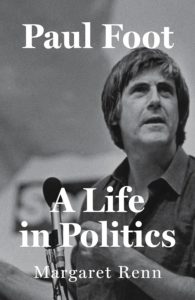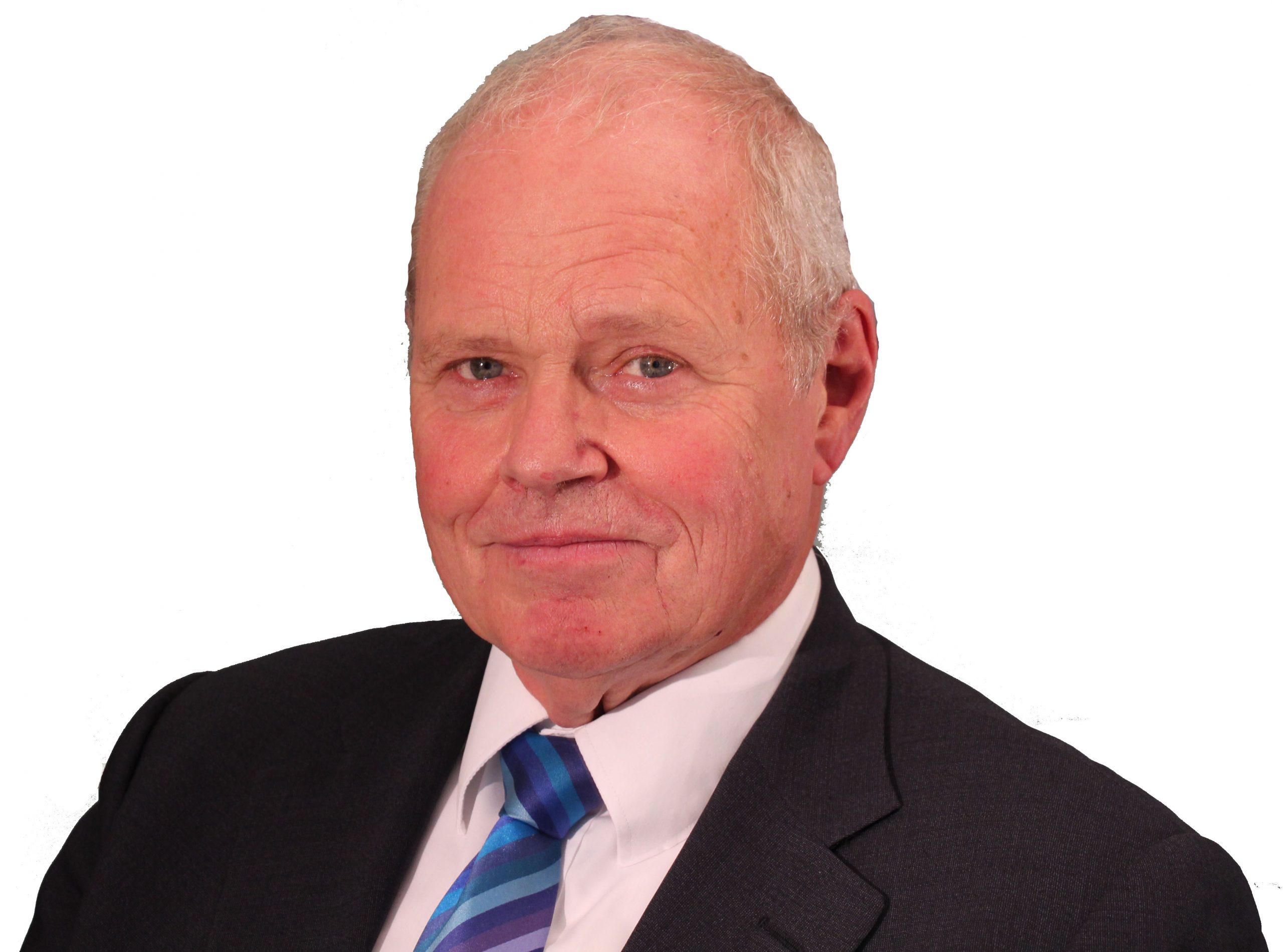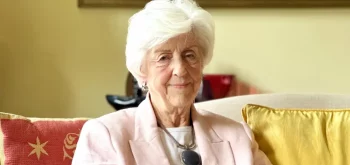BOOK REVIEW: David Jessel on the political awakening in his review of a new book on the brilliant investigative journalist and miscarriage of justice champion Paul Foot
 Lord Curzon, Viceroy of India and Britain’s poshest toff, once asked his butler about the newfangled silver bands that were beginning to appear on society dinner tables. He was told that they were napkin rings, used to preserve and identify napkins for future meals. Lord Curzon sighed. ‘To use the same napkin twice,’ he murmured, ‘I never dreamt such poverty existed.’ Pic: Paul Foot calling for an inquiry into the Hanratty case at Speakers’ Corner, Hyde Park
Lord Curzon, Viceroy of India and Britain’s poshest toff, once asked his butler about the newfangled silver bands that were beginning to appear on society dinner tables. He was told that they were napkin rings, used to preserve and identify napkins for future meals. Lord Curzon sighed. ‘To use the same napkin twice,’ he murmured, ‘I never dreamt such poverty existed.’ Pic: Paul Foot calling for an inquiry into the Hanratty case at Speakers’ Corner, Hyde Park
The story came to mind while reading Margaret Renn’s Paul Foot, A Life in Politics. Paul was born into privilege. His father, a colonial mandarin, toured the remnants of the empire while living in grand, fully-staffed mansions; Paul was privately educated at Shrewsbury and had the privilege of being thrashed by the notoriously sadistic headmaster Anthony Chenevix-Trench, who offered him the option of the cane with trousers on, or the softer strap-with-trousers-down – he chose, to Trench’s enthusiastic delight, the bare-arse option; he glided effortlessly through Oxford, gathering the golden apples of the Presidency of the Union and the editorship of the university magazine Isis. His first job was as a journalist for the Mirror Group, whose proprietor was, yes, a friend of the family.
He was sent to Glasgow to work on the Scottish Daily Record, ironically with an injunction from his friend Stuart Hall ‘to sort out the Trots’. But Glasgow was to be Paul’s Lord Curzon moment. Through contacts with CND – he’d been an Aldermaston marcher – he made friends in the Labour Party Young Socialists, drifting over to the Communist Party of Great Britain, until finding a political home with the International Socialists.
These were the years of the alphabet soup of the New Left, featuring the IMG, the CPGB, the RSL, the IS, the SWP and myriad other Trot clans which seemed to splinter and replicate no sooner than they’d been formed. Paul’s epiphany was the result of falling under the spell of articulate working class activists, honed perhaps by more abrasive encounters on Sauciehall Street where a drunk shouted: “What about Russia, what about the Berlin Wall?” When Paul explained that the wall was built to protect the socialist experiment from bourgeois saboteurs, he drew the response: “It’s there, you barmpot, to keep the workers in.” Although unfamiliar with the term barmpot, Paul had to concede that the heckler had a point.
In Glasgow, for the first time Paul had actual contact with, rather than theorising about, the lives of working class people. He went to the one-room flat of a Govan shipyard apprentice, who observed “it was the first worker’s house Paul was in”; he pronounced his supper of chips, Spam and tinned pears “amazing”. It was a sincere and enthusiastic compliment; Paul had discovered the class war, and knew with absolute certainty and relief what side he was on. From young militants like Jim Nichol – whatever happened to him? Oh yes, we learn a hundred pages later, that he ‘retrained as a lawyer’ – with whom he shared the occasional mouse-infested sofa on tours of the collieries, ‘it seemed suddenly clear that that society was cut into classes, and the classes were forever at war with one another’.
At Skegness suddenly everyone is a Trot
Why should we care about Paul’s ‘life in politics’, when his life in justice and journalism was surely more relevant? Well, that work is already well known. But what was it that compelled Paul to go every Easter weekend to the Derbyshire Mine Workers’ Holiday Camp in Skegness, which seems to have been just as dire as it sounds (even Paul described it was ‘one of the nastiest seaside towns in Britain’)? Was it because ‘for once I don’t feel like an oddball because I’m a member of the SWP. At Skegness suddenly everyone is a Trot’. ‘It’s probably the only place in God’s earth where people are queuing at 8.30 in the morning waiting for the bookshop to open. And [where] the ballroom is a place for non-stop political meetings 12 hours a day.’
Paul’s critics are quick to mock the apparent condescension of his political and journalistic activism. But there’s a respectable precedent – Ludovic Kennedy didn’t exactly struggle out of a Highland croft to achieve a place at Eton and Christ Church and fight for the wrongly convicted. Renn’s book leaves it to the reader to join the dots of his political journey; is it because privilege gives you a bullet-proof confidence in the face of authority; are there perhaps shreds of a subliminal sense of duty to put advantage at the service of the disadvantaged (scholars of the class struggle underestimate the force of noblesse oblige, possibly because it died out with Alec Douglas Home.) Mix that all up with a sense of the romantic and the ridiculous – Private Eye was his natural home, even in the company of the mythical Trot columnist, Dave Spart – and Paul’s progress through the scandals and sillinesses of the times might make some sense.
Paul had come home. The Trots had sorted him out. He knew where he belonged, and he loved the passion, commitment and loyalty of his new friends, the total lack of interest in matters material, and the joyous freedom from personal ambition or success. He brought his instinctive sense of justice to the class struggle – and with it a sense of humour which sometimes made you feel it was all a bit of an idealistic jape.
I saw this at first hand. Covering some long-forgotten by-election for The World at One, I went to an SWP hustings at which Paul was the candidate. Our paths had crossed in the past, my own politics being more Young Liberal than Young Socialist. I was identified as a target of derision; it was like being the unfortunate man in the front row picked upon by the stand-up star to add a bit of cruelty to the routine. My pathetic political gradualism was held up as the archetypal, insidious bourgeois betrayal of the working class struggle, preaching the gospel of compromise from the privileged pulpit of the BBC.
This, I thought at the time, was a bit rich, coming from a man with a much more gilded background than my own, and all the more painful given that I myself was fatuously characterised by the Daily Telegraph as ‘a self-appointed member of the tear-down society demi-monde’ and subsequently forced to resign by Ian Trethowan, the arch-Establishment Director General of the BBC, under the blimpish delusion that I was myself a Trot.
But I enjoyed the experience. It was the greatest fun to be part of Paul’s political roadshow. There was never any malice in Paul’s attacks, even on the worst villains whose activities he spent his journalistic life exposing. His was a passion – a ‘love’, as the following extract reveals – for the underserved in society, a romance tempered with humour and friendship. Alone among the sandpit activists of the 60’s and 70’s he had no time for internal rancour and division. His only enemy was compromise.
‘We want the commitment of workers who laugh and love and want to end the wretchedness and despair which shuts love and laughter out of so many lives. Society can be changed but only if working people abandon the rotten shipwreck of the ‘leave it to us’ reformers and commit ourselves to change from below.’
How this idealism squares with taking the Maxwell shilling at the Daily Mirror does not seem to have troubled Paul in the slightest, the ends self-evidently justifying the means. And what ends – the roll call of campaign honours in the battle for justice is unchallenged – the Carl Bridgwater case, the Belgrano, Helen Smith, the Lockerbie bombers, Poulson, as well as heroic failures such as Hanratty, where the CCRC actually exhumed the man (those were the days) to test the DNA – which only served to strengthen the case for conviction. (Paul always believed in Hanratty’s alibi and argued that if he was elsewhere, there must be something wrong with the DNA result; Renn coolly observes that the converse was also true – that if the DNA result was correct, there must be something wrong with the alibi -‘an argument Paul would not have accepted; he was loyal to the Hanratty family to the end’).
Paul’s output was prodigious, from his work on Private Eye and the Mirror, to say nothing of his fearless evisceration of the great and the good in The Politics of Harold Wilson and The Rise of Enoch Powell – that old fraud condemned by Paul as a racialist and imperialist. Less known is his love of Shelley, whom he seized upon as a fellow radical – his speech on Red Shelley to the shivering socialists of Skegness being an unexpected highlight of one Easter weekend. They loved it. “Now go away and read him; that’s the whole purpose of this speech”.
But another Shelley poem seems a more fitting summation of his political life – as with Ozymandias, his ideals and ambition lie buried in oblivion as the ‘lone and level sands stretch far away’. Paul himself, Renn reveals, sometimes had his private doubts that the struggle towards the revolution was futile, and that a Bennite Labour Party might be the best he could hope for and fight for.
But Lord, we miss him. Maybe I’ll cheer myself up by reading some Shelley.
And by urging you to buy and read this heart-warming book. My only quibble is that the appalling man who thrashed him at school is misspelt as Chevenix-Trench instead of Chenevix-Trench. But maybe getting the name wrong is deliberate – a mischievous teasing of his tormentor from beyond the grave.
Typical Footy.
Paul Foot: A Life in Politics, Marget Renn Verso 368 pp, £30







